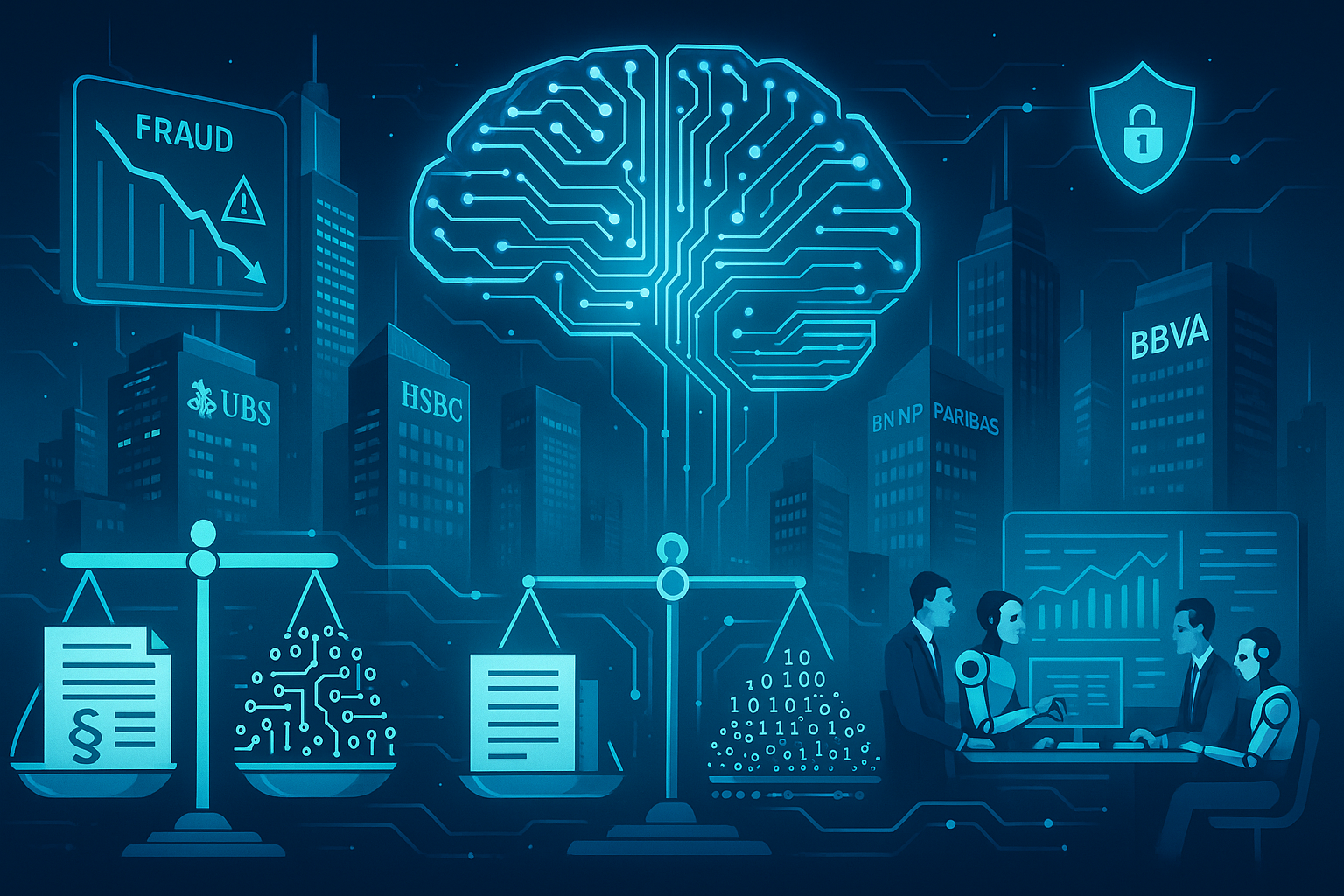· 4 min read
AI and Logistics: The Silent Revolution Already Transforming Your Supply Chain
Artificial intelligence is driving a silent yet decisive transformation in the logistics sector. From process digitalization to intelligent automation and data-driven predictability, companies like Amazon, DHL, UPS, and Maersk are achieving more efficient, accurate, sustainable, and resilient logistics. The key lies in informed decision-making, predictive analytics, and asset sensorization.

In the digital age, the logistics sector is experiencing a silent yet profound revolution. Artificial intelligence (AI) has become the key driver of the digital transformation of supply chains, enabling logistics companies to optimize their operations like never before. Processes that traditionally relied on manual work or intuition are now managed by intelligent algorithms capable of digitizing tasks, analyzing massive data sets, and anticipating future scenarios.
The result is a more efficient, sustainable, accurate, and competitive logistics environment, where every decision is data-driven and every link in the chain benefits from intelligent automation.
Digitization and Intelligent Automation of Logistics Processes
Companies are leveraging AI to digitize operational and administrative processes that were previously slow or prone to error. Intelligent automation covers everything from automatic document verification using computer vision to inventory management with smart systems.
For example, DHL has implemented Robotic Process Automation (RPA) in its administrative operations, eliminating repetitive tasks. The result? A 50% increase in operational efficiency, freeing employees from routine work so they can focus on strategic tasks. In a pilot project, software bots achieved full return on investment in just one month.
Digitizing processes not only speeds up operations but also reduces human error and ensures greater accuracy in every task.
Data Analytics and Predictive Capabilities for Demand, Routes, and Inventory
AI stands out for its ability to analyze large volumes of data and generate accurate forecasts. In logistics, this translates into:
- Demand forecasting
- Inventory optimization
- Optimal route planning
Companies like Amazon use machine learning algorithms to anticipate which products customers will need and position stock in advance, speeding up deliveries and avoiding stockouts.
Advanced platforms analyze variables such as sales history, seasonal trends, traffic, and weather to continuously adjust their forecasts. This enables just-in-time inventory replenishment and optimal resource allocation, ensuring availability without overstocking.
Notable Examples
- Maersk implemented Captain Peter, a program that advises ships in real time on speed and routing, saving millions in fuel costs and reducing CO₂ emissions.
- UPS uses ORION, a route optimization system that saves nearly 100 million miles of travel and 10 million gallons of fuel annually.
Additionally, predictive analytics enables:
- Preventive maintenance of vehicles and equipment
- Reduction of downtime
- Longer asset lifespan
Together, AI provides unprecedented control over logistics operations.
Virtual Assistants and Decision Support Systems
Intelligent virtual assistants and decision support tools are another transformative facet of AI in logistics.
- Amazon uses virtual assistants that automatically answer frequently asked questions through natural language processing and machine learning.
- DHL has developed Ask Olivia, a virtual assistant that responds to shipment-related questions in natural language.
In addition, companies are integrating smart dashboards that provide:
- Suggestions for warehouse planning
- Optimal stock levels
- Scenario simulations in response to demand changes
The integration of AI with TMS, WMS, and ERP systems enables a unified, real-time view, making coordinated decision-making easier.
Sensorization and Real-Time Data for Precise Logistics
Massive sensorization and real-time analytics complete the digital transformation of logistics. Connected sensors in shipments, vehicles, and facilities enable:
- Instant data collection on location, condition, or environment
- Rapid response activation through AI
- Automatic adjustment of deliveries
Relevant Cases
- UPS has integrated a smart network with cloud-connected cameras and scanners to monitor millions of packages daily.
- During the pandemic, this network enabled the safe distribution of vaccines.
- IoT devices allow for full traceability and early detection of deviations or failures.
The result is more precise, reliable, and resilient logistics.
Tangible Benefits for Logistics Companies
The use cases above translate into concrete benefits:
Operational Efficiency
- Reduction of operational costs by 10% to 30%
- Distribution cycles shortened by up to 40%
- Order preparation accuracy reaching up to 99%
Sustainability
- Reduction of unnecessary trips and CO₂ emissions
- Route and load optimization
- Predictive management that prevents surplus inventory
Accuracy and Quality
- Demand forecasting that prevents stockouts
- Computer vision that verifies orders without errors
- Greater trust and fewer customer complaints
Competitiveness and Service
- Faster deliveries
- Real-time tracking
- Personalized service with virtual assistants
- Increased customer loyalty and adaptability
Conclusion
Artificial intelligence has become an indispensable strategic ally for logistics companies aiming to be more efficient, sustainable, accurate, and competitive. What began as isolated initiatives is now the new industry standard: AI-powered logistics.
Organizations embracing this transformation are already seeing improvements in:
- Costs
- Speed
- Quality
- Environmental impact
- Customer satisfaction
In a global and demanding world, investing in AI is no longer optional—it’s essential. The supply chain of the future will be intelligent and adaptive. Companies that integrate AI ethically and effectively will be at the forefront of the next generation of logistics.
Take the Next Step Toward Smart Logistics
At ALS Innovation, we help logistics companies make the leap into artificial intelligence with tailored, scalable, data-driven technology solutions. If your organization is looking to improve operational efficiency, reduce costs, gain real-time visibility, or make smarter decisions, now is the time to act.
Contact us and discover how to turn your supply chain into a competitive advantage powered by AI.

